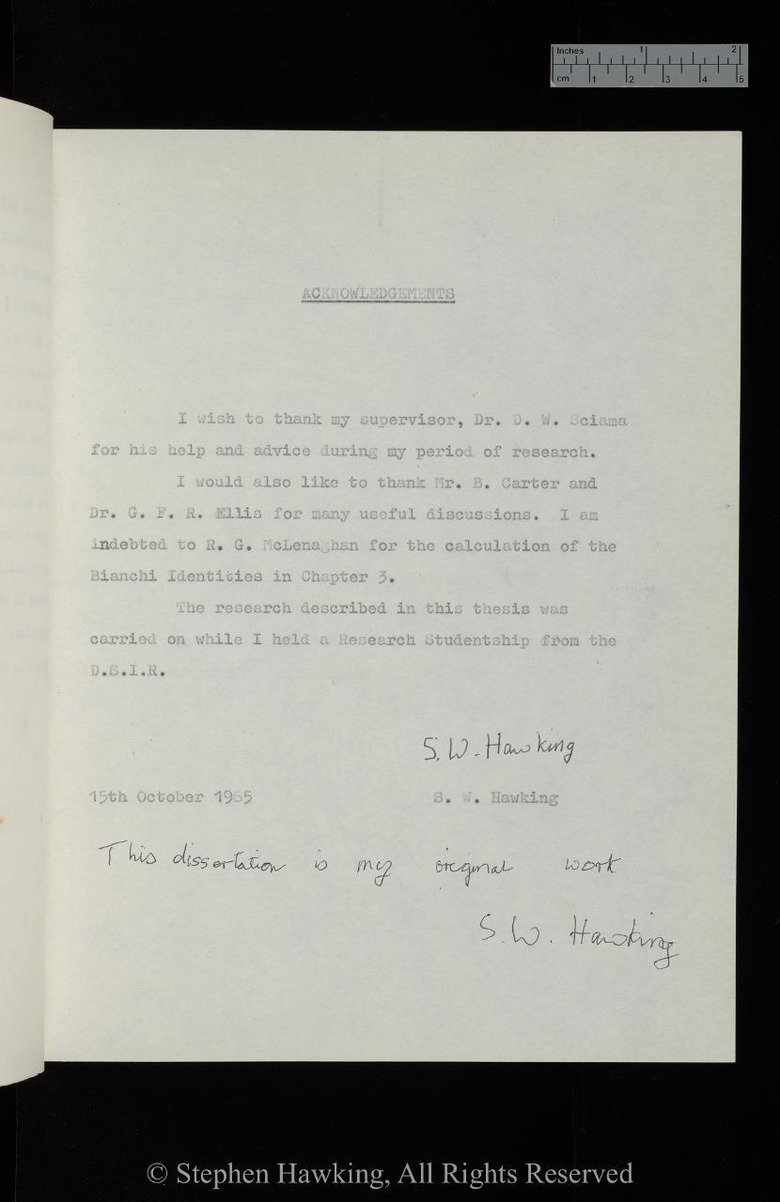Stephen Hawking PhD thesis released for free, crashes website
Stephen Hawking is arguably one of the greatest minds of our time. But like any genius, he didn't spring forth fully formed like Athena from Zeus's head. Before Hawking, the scientist, was Hawking, the postgraduate student. And while we can't travel back through time (yet), we can at least try to get a glimpse of the young man of 24 through his 1966 thesis. Now anyone can try to do that now that Cambridge University has made it available to anyone for free.
"Properties of expanding universes" marked the start of Hawking's very public life as one of the world's top physicists. It is also one of the most requested thesis to be accessed from its repository, Cambridge reveals. As part of its goal to make such wealth of knowledge more easily available to all, and in time for its Open Access Week, Cambridge has added the thesis to its Apollo Open Access repository, alongside papers from the likes of Isaac Newton and Charles Darwin.
Of course, they had Hawking's permission, and that's part of what makes this release more interesting. Hawking finally allowed Cambridge to give free access to his thesis in order to hopefully inspire others to set their eyes and their minds beyond their feet and, in a way, their smartphones. He admits that like any great mind, he stood on the shoulder of giants and hopes that his thesis will also become a similar platform for future generations to stand on.

Cambridge wasn't joking when it boasted that there was such a great demand for Hawking's thesis. It should have then been better prepared for what happened next. Within just day, nay, hours of releasing the document to the public, people hungry for knowledge stormed Cambridge's Open Access website, which promptly crashed it. The site is now back up but moving at a crawl.
Cambridge's Open Access endeavor faces both backward and forward looking problems. For past content, like theses, it has to get the necessary permission from authors or copyright owners to get the works published for public consumption. It's even harder if the work was made without any digital copy. Moving forward, the university will require PhD graduates to submit an electronic copy of their dissertation for archiving.
SOURCE: Cambridge
